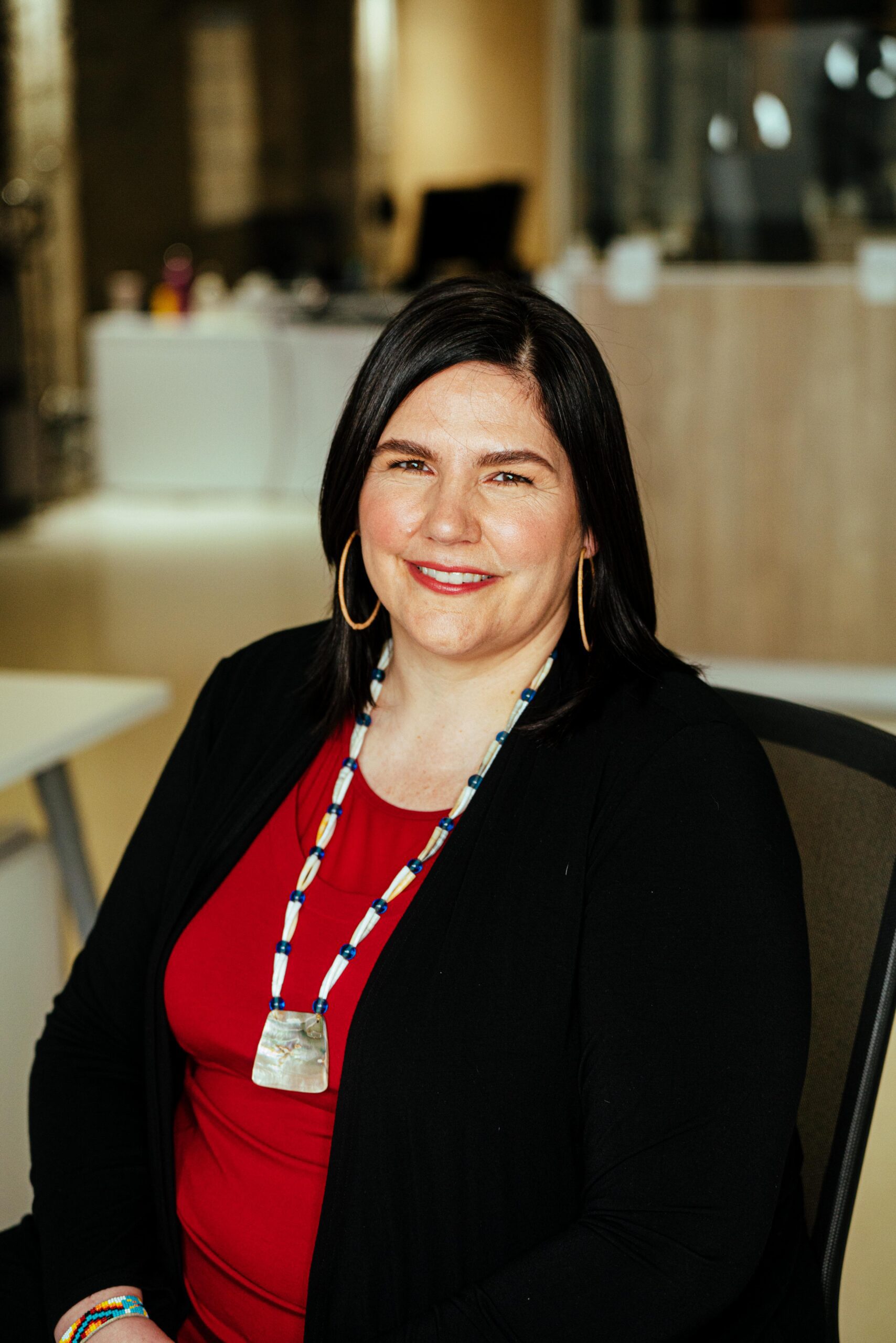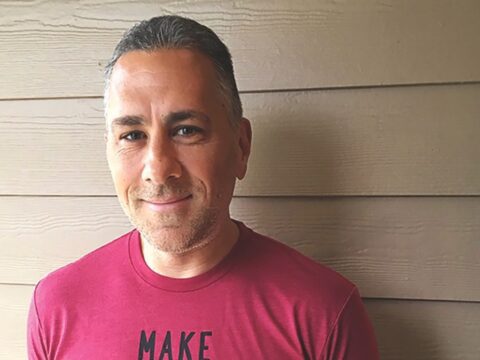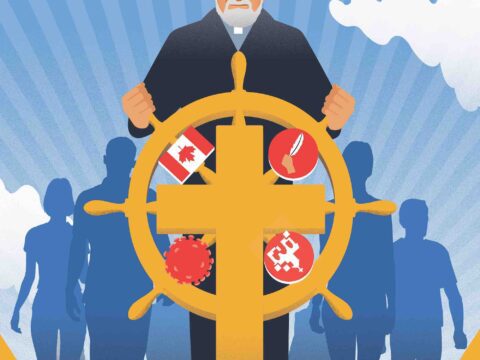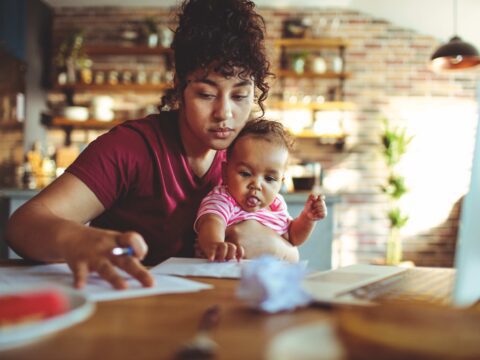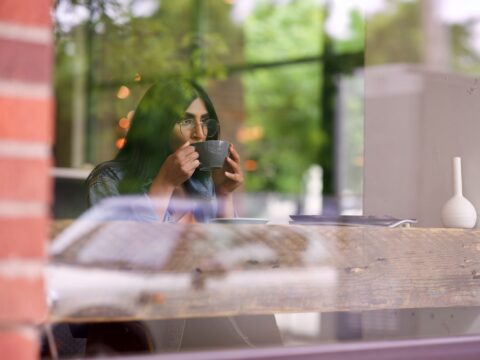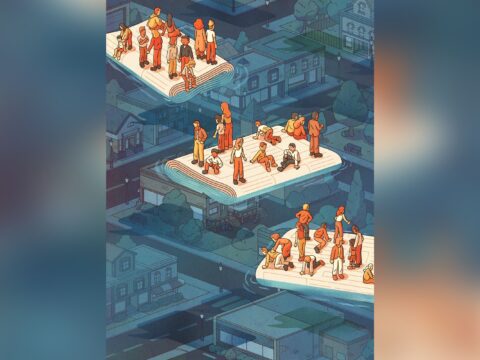The United Church’s General Council meetings begin on Feb. 13, and on July 22, and the election of a new moderator will take place on July 22. As of publication, Rev. Carmen Lansdowne is the only nominee for the position. If elected, she would be the first Indigeous woman to spiritually lead Canada’s largest Protestant denomination (The Very Rev. Stan McKay was the first Indigenous moderator).
Lansdowne is a member of the Heiltsuk First Nation and the executive director of Vancouver’s First United. She spoke with Broadview’s digital editor, Emma Prestwich, about the United Church’s landmark apology to Indigenous peoples in 1986 and what she’d like to see the church focus on in the near future.
Emma Prestwich: How are you feeling about being nominated?
Carmen Lansdowne: It feels a bit surreal, honestly. As you know, I’m the executive director at First United Church which is a really busy, incorporated ministry of the United Church in the Downtown Eastside of Vancouver. We’re in the middle of finalizing the designs for a new, almost $70-million project to redevelop our property.
Obviously, the role of moderator is demanding, and it’s one that I’d have to talk seriously about with the team that supports the moderator, with the general secretary and with my team [at First United]. We have a plan in place — the [First United] board is using the next couple of months to discern what things would look like for me to take a leave of absence if I was called by the church.
So we’ll just have to wait and see what happens. And the nice thing is, if I’m not the person who’s called at this time, then I have a really interesting and full life and ministry, so I’ll just keep on doing what I’m doing.
EP: It’s early days, but do you have any burgeoning ideas about what you might want to do in this position?
CL: I don’t think I can fully answer that question until we’ve sat through some of the listening and decision sessions of the General Council. I’m deeply aware of the fact that the restructuring of the church has sort of set the Indigenous [United Church] adrift, despite all of the commitment. I believe the way that the church was restructured was not done in full partnership with the Indigenous church. As a Heiltsuk woman, if I were called to be moderator, I can imagine there would be some discussions about how to set that right or at least to have that discussion.
I have also watched the rural church struggle, not just from the restructuring and the loss of presbyteries, but also before that, with the decision to eliminate the transfer and settlement process [for ministers]. So those are two areas where I feel like we need to turn our attention.
EP: If elected, you’d follow in Stan McKay’s footsteps as the second Indigenous moderator. What would that mean to you?
CL: He has been such a gentle force for good in the church and in the world, and I would just be deeply honoured and privileged to be the person that followed in his footsteps next. And I hope we certainly wouldn’t be the only two. There are definitely some other Indigenous leaders in the church that have a lot to offer, but it would be an incredible legacy to be a part of.
EP: In your General Council bio, you mention something that I think a lot of folks in the church don’t know: that the Indigenous church still hasn’t accepted the 1986 apology. Can you explain that a little bit more?
CL: You can think of a relationship between two people and one has hurt the other very deeply. There’s the act of making a sincere and unqualified apology, which I believe that the church did when Robert Smith was the moderator. But part of that apology is a living apology and making amends — proving through your behaviour you can do things differently.
And so what the Indigenous church said back at the 1988 General Council was that they were going to acknowledge the apology, but they weren’t accepting it because they wanted to wait and see what the church did differently.
More on Broadview:
- At 1JustCity, Indigenous peoples — and settlers — come to heal in a safe space
- United Church digital hymnbook will include songs that ‘reflect the world’
- United Church ministers are burning out
My mother has a long history in the Indigenous church, and sometimes she wants to pull her hair out and says, “This is the conversation we were having 40 years ago, you can’t be serious that things haven’t progressed past this.” And so the Indigenous church is still waiting to see the church really, truly do things differently.
I have started to see small snowdrops of hope poke up through that frozen holding pattern that we’ve been in. The ways that, especially in British Columbia, people from The United Church of Canada showed up for the Truth and Reconciliation Commission hearings and were deeply moved and impacted by that.
EP: What role do you see the church playing in society in general?
CL: My feeling is that some of the divisions that we’re seeing across Canada — across political divides, across racialized communities, the increase in racism, the increase in classism, the ways people are showing up for protests — are symptoms of some wider, systemic social justice issues around how we’re all impacted by global, political-economic structures.
And the church has a really strong history on social justice, and that’s obviously the work that I feel called to do as a theologian and as somebody in outreach ministry. I think that if the church endorsed raising our voices to reclaim some moral authority around economic systems of injustice in this country, that would go a long way to heal some of the political divides. So that’s something I’m interested in listening to see if the church feels ready to have those kinds of conversations, too.
This interview has been edited for length and clarity.
***
Emma Prestwich is Broadview’s digital editor.

